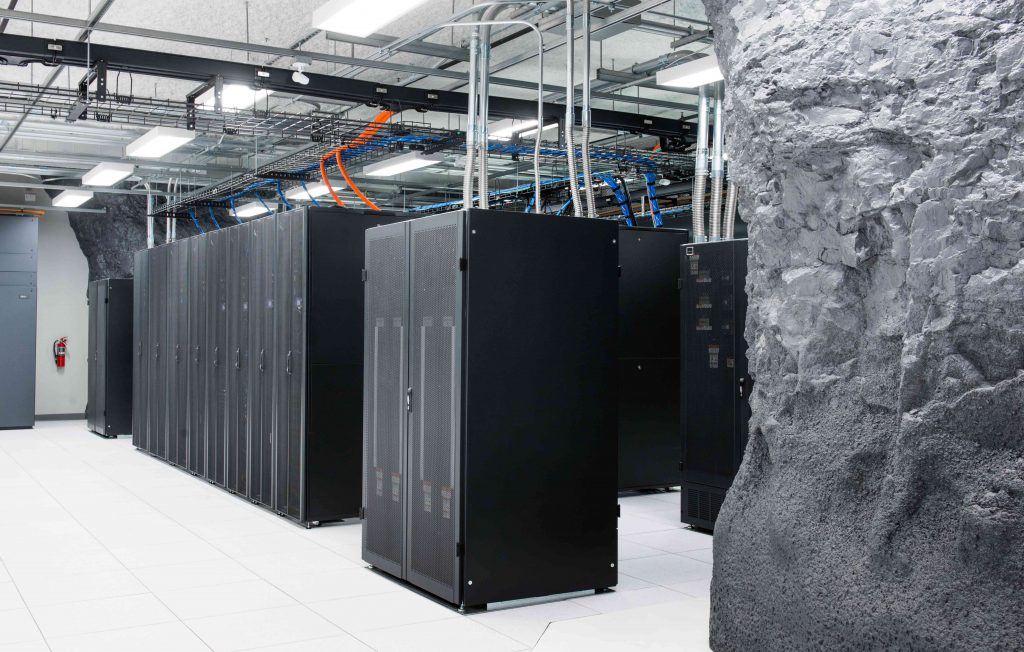If you’ve ever done some reading about data centers, you’ll hear the term “mission critical facilities” thrown around a lot. The same goes for “mission critical infrastructure”. At the surface, it seems pretty self-explanatory but there is so much more to a mission-critical element of IT than meets the eye.
Today, we’ll explore the complexity of a mission critical data center and the potential it holds for a company’s most sensitive data, applications and infrastructure, answering some of your most common questions. We’ll also talk about how to facilitate discussions with a potential provider, so you walk away with the facility that best suits your company’s needs. Finding your mission critical facility shouldn’t feel like mission impossible.
What Makes a Facility Critical?
Critical facilities function as a spine for your whole organization. Everything allowing you to conduct business as usual typically passes through these facilities. This means that these facilities often face a considerable amount of traffic and strain. They have to support multi-tenant carriers and even freestanding data centers. So, for obvious reasons they require the highest standard of uptime, safety and security, often necessitating comprehensive and constant care and management.
Why You Should Outsource
While you may be tempted to try to fulfill your mission-critical functions in-house, it’s important to know when it’s time to pass the torch to someone else. Just because you can do it all on your own doesn’t mean that’s what’s best for your business. There are several reasons why a company chooses to outsource their data center and colocation needs, but here are a few of the most common. If any or all of the reasons below look like issues for your business, it’s time to start looking for a facility to host your infrastructure.
Time
If you want to build your own data center, it takes time. The migration will be slow and clunky, and you’ll often feel like you’re flying blind into the world of engineering and IT infrastructure. If you ever need to scale up your operations to account for growth, you’ll run into snags and lags and potential downtime for your customers and staff as you work to get it up to speed.
However, if you were to choose to outsource your data center operations to a third-party provider, your mission critical infrastructure will always remain accessible and secure, even if you’re in the process of scaling your operations. You won’t lose time trying to find workarounds. You won’t have to wait for your system to catch up. Rapidly scalable solutions make the transition seamless and nearly instant without any worries about losing or missing anything.
Money
As nice as it would be to keep all of your infrastructure in-house, it’s not possible for the vast majority of companies to do so. Building and maintaining a mission-critical data center for your needs is a costly endeavor and the 24/7/365 staffing you’d require to keep it up and running is often enough to make any CFO shudder in horror. This doesn’t include the costs of training those staff members, maintaining certifications and other benefits you should be providing. The numbers really start to look astronomical.
When you outsource to a colocation provider, they take a lot of the financial burden off your shoulders. Outsourcing in this situation means pooling the cost of your staffing, maintenance and other costs with fellow customers so you end up paying a fraction of what you would for a private, in-house facility. This alone makes a mission-critical migration well worth the investment.
Compliance
Are you looking for ways to offer more to your customers in terms of compliance? Are there certifications you’d like to achieve, but the process is costly and time consuming? The right facilities have the capability to provide documentation needed for an audit and offer certifications you can inherit through their facilities and services. While it may not completely cut out the cost of a certification, it can certainly help you minimize the damage to your bottom line.
If compliance is an area you’re looking to amp up without spending an arm and a leg, choosing a mission-critical facility can help you take the leap into total compliance without the risk of going at it alone or insufficiently.
Connectivity
Customers in a solid mission-critical facility will experience little-to-no downtime at all. With network offerings that harness the power of several internet providers, the failover rate protects you from unnecessary loss of access. While this is of course beneficial for your staff, it’s also beneficial for customers who may be accessing your platform. Networks are a huge differentiator for many providers so be sure to ask for specifics so you can compare and contrast among the providers you’re looking at.
Critical Questions Mission Critical Facilities
With an investment as huge as a mission-critical facility, it’s important to get it right the first time to avoid costly mistakes, breaches or even compliance violations.
Keep in mind that the perfect data center does not exist, so take that pressure off your site selection team so they can focus on key characteristics and not get hung up on the details. Agree beforehand which elements are must-haves, which elements are dealbreakers and which elements you can mitigate within your budget. If you start out on the same page about what you’re willing to compromise on in terms of budget, availability and design so the process on your end is as smooth as possible.
Nobody knows your needs like your team, so there is no right or wrong answer to the question of where to store your data. Only the way that is right for you. Here are a few conversation starters for you and your prospective providers to ensure you find the facility that works best for you and your organization’s goals and objectives for housing your most precious data.
Ask About the People
With all of these requirements, it’s important to be prudent when shopping around for the ideal data center partner. The teams that manage and support these types of systems need to be capable and comfortable handling advanced governance, operations, and use-cases. The support of your systems is just as crucial as the physical facility itself. Some data centers go the extra mile and offer additional security services and advice as an additional benefit to their customers, compounding the value of the investment.
Have a chat with your potential partner about the experience of the staff managing and maintaining the facility. Do they have experience with your industry? Is their data center a mission critical facility for more than just your organization? How are they educating their staff to prevent service interruptions or breaches? The more you know about your prospective data center team, the more prepared and confident you will be when troubleshooting any issues that may arise during migration, implementation or later in your tenancy.
See What You Can Inherit
If you have a compliance requirement that you need fulfilled, mission critical facilities can give you a leg up against the competition by offering inheritable certificates and controls. If you’re an organization that would benefit from an ISO or HITRUST certification, make sure to bring up your commitment to industry compliance standards with any prospective providers to see what they can offer. Often a transferrable compliance certification will help you offset the cost of these facilities due to the fact that the provider underwent the expensive auditing process instead.
Talk to your potential providers for a better idea of how comfortable they are navigating compliance requirements for your specific industry and see what they have to say about their offerings. This is a key differentiator for many data center providers so be sure to have this conversation straight away to save time.
What’s the Weather Like There?
No, this isn’t just small talk. This is a key indicator of how protected the facility is for natural disasters. It’s no secret that almost every area in America is prone to some sort of cataclysmic weather, but there are some areas and risks that are easier to plan for than others.
For example, if might not be possible to plan for a tornado, but you can actively choose not to work with a data center provider who has their data center in an area that floods almost annually. A good data center provider will offer options with maximum weather protection, like an underground site in an area with high winds or tornadoes, or a data center situated high above a 500-year flood plain. Talking about the weather and natural disasters in the area is a way for you to minimize risks and ultimately make sure that your critical systems are stored in a way that makes them as available as possible.
How Much Downtime Should I Expect?
We all know this number should be low, but it’s important to gauge the downtime this data center has experienced in the past, when it happened and how long it took to resolve. Some data centers, depending on the Tier can experience downtimes ranging from less than a half hour to just over 24 hours per year.
Only you know the answer for your own tolerance for downtime. If you have a little customer interaction outside of business hours, a middle-of-the-night bit of planned maintenance may not make or break your data center experience, but if you promise constant availability for whatever you provide or serve global time zones, you may want to try to get that number as low as possible. A good provider will give you the tools you need to make an informed decision about what might work. Additionally, they will likely be able to give examples of what similar customers have done, which can be extremely beneficial for your decision making.
Come Take a Critical Look to See if LightEdge is Your Next Critical Facility
Finding a colocation provider that meets the security, network availability, scalability, and support that your organization requires may seem daunting. Thankfully, LightEdge is top performing in each of those categories.
As a top-tier colocation services provider, we deliver a high level of availability and reliability through secure, certified data centers, and dedicated staff onsite. Our customized and scalable services give you the control, whether you need a colocation rack, cage, or custom suite now or in the future. We’re ready to manage your most critical infrastructure.
LightEdge’s highly trained compliance and security experts take the guesswork out of keeping your business protected. Trust our expertise to ensure you are covered through our security and compliance services, including risk management, information security, audit preparedness, and support.
With geographically dispersed facilities across all of the US power grids, our data centers are the heart of our operation and yours. We have a wide range of colocation and disaster recovery solutions delivering advanced shared infrastructure designed to enable operational and financial efficiency, reducing the burden on your IT staff.
LightEdge business support services are available 24 hours a day, 7 days a week, no exceptions. Our technical support starts with direct access to technicians in LightEdge’s Network Operations Center (NOC) via a toll-free number for emergencies. The LightEdge Portal allows you to open tickets, track progress and more for all of your services.
Customers turn to LightEdge to reduce risk of non-compliance, scale security and for our proven predictably and cost-effectiveness. LightEdge provides customers with an extended team of experienced engineers, so you can refocus internal resources on agility, differentiation and running towards achieving your desired business outcomes. Are you curious on how your current provider stacks up? Our security experts will provide a free security assessment to see how you measure up against the latest compliance and security standards. No risk, no commitment. Contact us today to get your free security assessment.




